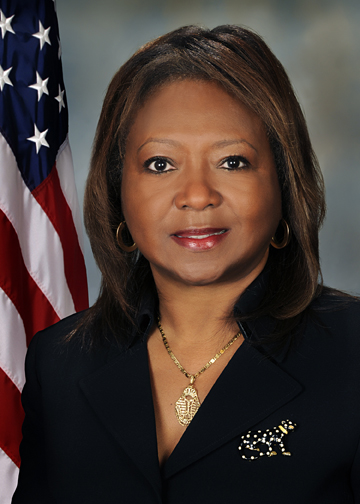Q&A with Mary Flowers: Reviving the Fight for Patients' Rights


Being named a finalist in the Online News Association awards last week for the Doctors Behaving Badly series prompted me to call my mother.
What was even more heart-warming, though, was the knowledge that Antidote – and that series – played a role in creating an important piece of patient safety legislation.
After writing about Dr. Robert Levi-D'Ancona in June 2010, I focused on the lack of public disclosure in Illinois and the court battle over it. I interviewed a patient who had testified before state legislators and State Rep. Mary Flowers, who had fought for more than a decade to make medical malpractice histories public in Illinois.
After the state Supreme Court had struck down her public disclosure law because it was tied to a medical malpractice cap the court deemed unconstitutional, Flowers was feeling defeated. The state had removed its online database of physician histories, leaving the public in the dark about medical misdeeds. When I asked her last week what prompted her to revive the law, she said, "I have to thank you for that."
I caught her on the way to an event hosted by Chicago Mayor Rahm Emanuel. The first part of our interview appears below. It has been edited for space and clarity. You can read the second part here.
Q: When we last talked, you were frustrated by a couple of things. The court had just struck down your Patient Right-to-Know bill, and then the state had removed its Physician Profile database as a result. This was after many years of trying to get a bill like that through the legislature. What prompted you to try one more time?
A: I have to thank you for that. You gave me the energy. Sometimes you have been in a fight for so long that you just want to walk away. You fight and fight and fight. You fight so much that when people see you coming they turn their nose up because they know you're going to want to fight. Every which way I turned there was a new group of people trying to fight me on this bill, and it has been going on for more than a decade. Every 18 months, I had to explain my purpose again to a new group of people. I had to explain the deaths that have been caused by people not having the right to know about these doctors. It's like you're always speaking a different language. You're trying to walk forward with a ball and chain on your ankle. It wasn't until you called that I started to think about going back to the fight.
Q: But I don't think you had even heard of me or my site until I called.
A: I'm serious. There were a lot of things going on then that were taking up most of my time. I needed someone to push, and your call made me think about the Patient Right-to-Know Act again. By talking to me about this bill, you revived all the issues and all the ill feelings. You brought people back into my memories that I had wanted to forget. It's your fault!
Q: I'm not quite sure how to take that. How did you turn all those ill feelings into something positive?
A: Bringing that bill up again was something I knew that needed to be done, and you just gave me that extra oomph. There's one more breath in my body, and I'm going to take it and move forward with this. After you published your interview with me, The Chicago Tribune finally started running articles about the lack of disclosure. So I started seeing light. I started seeing other people taking an interest.
I couldn't get the media interested in this issue before. I was interviewed a few years back by one of our local TV channels and the interviewer said, ‘You know you are wasting your time. You can never beat the medical society.' I said, ‘Wasting my time? You should be praying for me to be fighting this battle because we are talking about our lives.' After your call, I didn't feel like I was fighting this battle by myself.
Q: I remember that when we talked last time, the Chicago Tribune had just started writing about the lack of discipline for convicted sex offenders. You were surprised that they weren't also talking about the Patient Right-to-Know Act and the fact that your legislation had been struck down by the courts. To get people interested in the importance of medical oversight, those Tribune stories had to help.
A: (Reporter) Meghan Twohey was like a hound dog. I think every time she woke up in the morning she was looking for another way to show that the medical discipline system wasn't working. She eventually got fired up about the right to know, too.
Q: That TV reporter you mentioned wasn't completely wrong. The physicians' lobby has blocked your efforts in the past. What did the Illinois State Medical Society have to say about your bill this time?
A: They came to me and said, "We'll make a deal. If you carry this sunset law, we will support your right-to-know bill."
Q: What was the sunset law?
A: They wanted to have a particular sunset date for the state's medical practice act. That way they would be able to go in and rewrite the laws that govern their practice. By opening up that window, they could have undone all the patient protection legislation that we have built up over the years.
Q: What was your response?
A: I told them I was not going to carry anything dealing with the sunset of the medical practice act. I'm carrying this bill clean and clear. Take it or leave it. It will go on its own merits. I'm not going to make a deal with you under any circumstances.
Q: This must have been a bit of a flashback for you because you had to cut a deal with your previous bill in order to get it passed. And it was that deal – binding the Patient Right-to-Know legislation to the medical malpractice cap – that ended up killing your bill when the court struck down the malpractice cap.
A: That's right. When the court ruled that unconstitutional, then a severability clause kicked in that said if one part of the law failed, the whole thing failed. That's one of the reasons I didn't vote for my legislation in the end. I did not like the compromise. I was happy to see the Patient Right-to-Know language go through, but I did not like that cap on damages for pain and suffering.
Next: Flowers plots her next move for patient safety in Illinois
Related Posts:
Q&A with Mary Flowers: Looking for New Ways to Improve Patient Safety
Q&A with Mary Flowers, Part 1: Bringing medical mistakes out of the shadows
Q&A with Mary Flowers Part 2: Adding "sorry" to the medical lexicon
Chicago's Buried Bodies, Part 1: Illinois regulators make backgrounding doctors near-impossible
Chicago's Buried Bodies, Part 2: Millions in malpractice judgments amount to nothing in Illinois
Chicago's Buried Bodies, Part 3: The doctor discipline ball bounces to the legislative court

